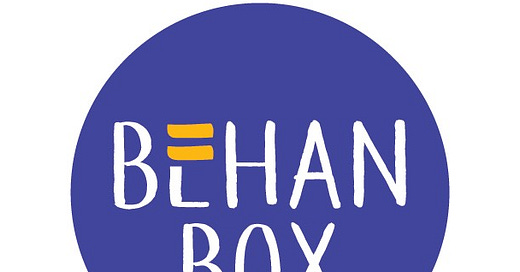Heart Lamp’s Booker Prize Win Is a Radical Moment For Indian Literature
Banu Mushtaq and Deepa Bhasthi offer stories that are rooted in the specific, but speak to many—asking what it means to live with dignity, wit, and contradiction in the face of everyday limitations
On May 21, Heart Lamp by Banu Mushtaq, translated by Deepa Bhasthi from Kannada, bagged the International Booker prize for translated fiction. This marks a first of many kinds– the first Kannada title, first short story collection and Deepa became the first Indian translator to bag the award.
“This moment feels like a thousand fireflies lighting a single sky – brief, brilliant and utterly collective,” Banu Mushtaq said in her Booker winning speech.
Born in Karnataka’s Hassan, Banu, an activist, journalist, and lawyer, has a writing career spanning six decades. Her works navigate lives of women, religion, and resistance. She chronicles the everyday lives of Muslim and Dalit women—told without apology, softened language, or spectacle. Banu’s language is rooted in Karnataka and is hard to classify – Kannada with Dakhni, Urdu, and scant Arabic.
Banu was part of the Bandaya Sahitya movement in the 1970s, which changed the Kannada literary landscape by centering protest and carving out a space for marginalised voices.
She said in her wining speech:
“This is more than a personal achievement, it is an affirmation that we as individuals and as a global community can thrive when we embrace diversity, celebrate our differences and uplift one another. Together, we create a world where every voice is heard, every story matters and every person belongs.”
“This book is my love letter to the idea that no story is “local”—that a tale born under a banyan tree in my village can cast shadows as far as this stage to night.'“
Deepa – the first Indian translator to win this award – cited a Kannada song, while accepting the award. “jenina holeyo, haalina maleyo, sudheyo, Kannada savi nudio.” (Kannada is like a river of honey, a rain of milk, and sweet ambrosia.)
“Kannada is one of the oldest languages on earth and I am ecstatic that this will hopefully lead to a greater interest in reading, writing and translating more and more from the language, and by extension, from and into the magical languages we have in South Asia.”
The Lives of Women
Heart Lamp is a searing, tender, and often darkly funny collection of 12 short stories written over three decades. Set in southern India, the stories centre Muslim and Dalit women navigating gender, faith, caste, desire, and despair. They throw light on the architecture of control—biological, social, religious—and what it takes to reclaim a life within it.
Mehrun, from the titular story, realises that survival sometimes means inventing new reasons to live. In High Heeled Shoe, a pregnant woman confronts control through a pair of stilettos. In each story Banu centers women navigating systems tilted against them, which establishes her as a keen observer of human nature.
We were also moved by Stone Slabs for Shaista Mahal in which a woman is passed between her father and husband like property. Black Cobra shows how the deafening silence of women can erupt into a quiet revolt.
Keeping the tone colloquial, witty and moving, Banu’s characters include audacious grandmothers, anxious new brides, indifferent husbands, and paternalistic brothers and neighbours who watch everything. Together, Banu and Deepa offer stories that are rooted in the specific, but speak to many—asking what it means to live with dignity, wit, and contradiction in the face of everyday limitations.
A Radical Translation
Heart Lamp is a “radical translation of beautiful, busy, life-affirming stories”, said Max Potter, the chair of Booker jury. The translation by Deepa doesn’t polish the stories for readers. It keeps the Kannada, Urdu, and Arabic words intact—trusting the reader to meet the text on its own terms.
For the Paris Review, Deepa writes about the politics of language and highlights how “the greatest threat to linguistic diversity across India comes from the imposition of Hindi.” This is coupled with the “the hierarchy of who gets to translate, who gets to be translated, who gets funding for new translations,” where Kannada lags behind Malayalam, Urdu or Tamil. “To translate at all, and then to translate from an underrepresented language, and finally to translate into English, with all its baggage, is riddled with layers of questions for which there can never be simple answers,” she wrote.
The jury praised Heart Lamp for its “unflinching honesty, emotional precision, and evocative portrayals of lives often erased from the mainstream literary canon”.
Which story from Heart Lamp spoke to your heart and stayed with you?




